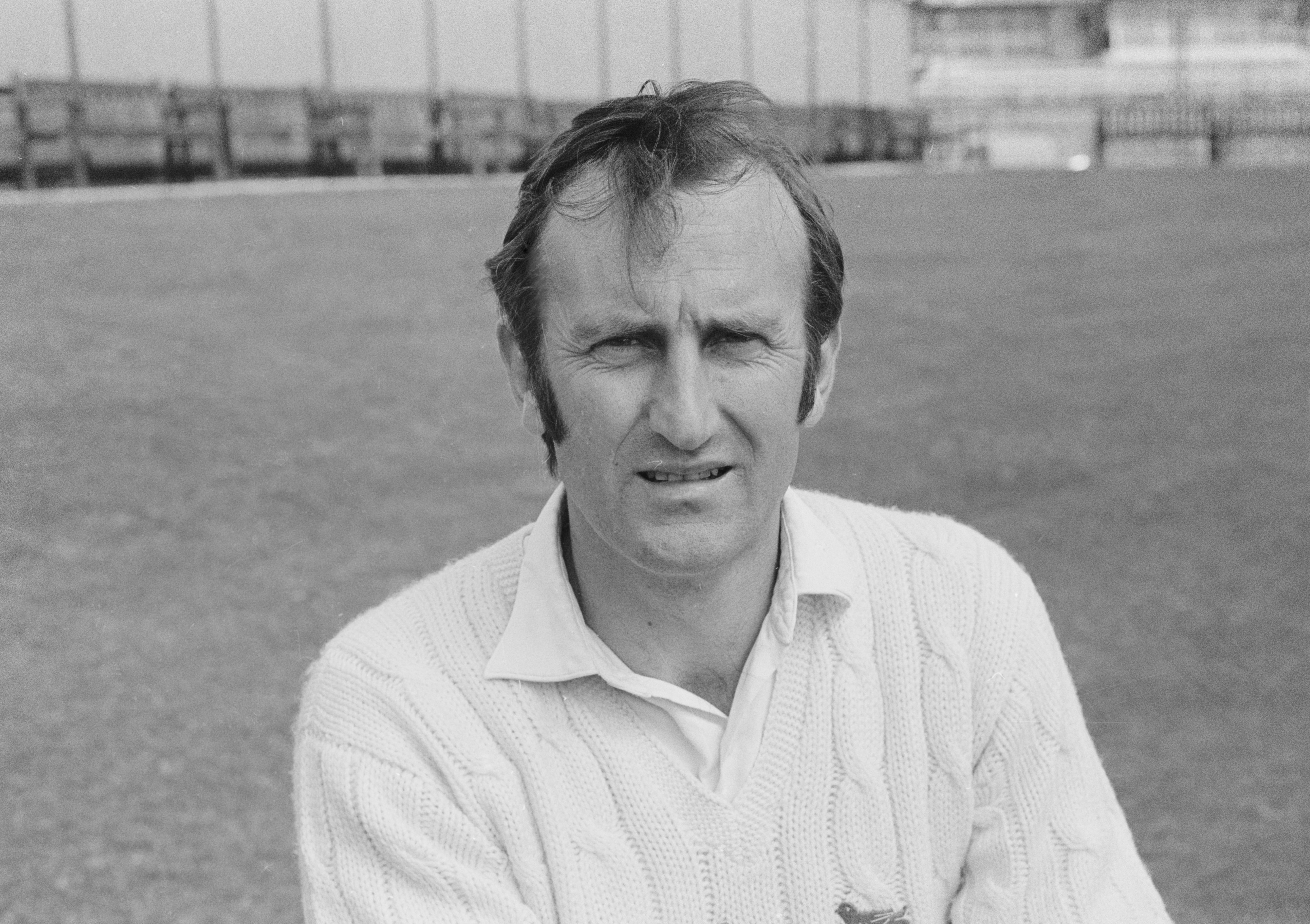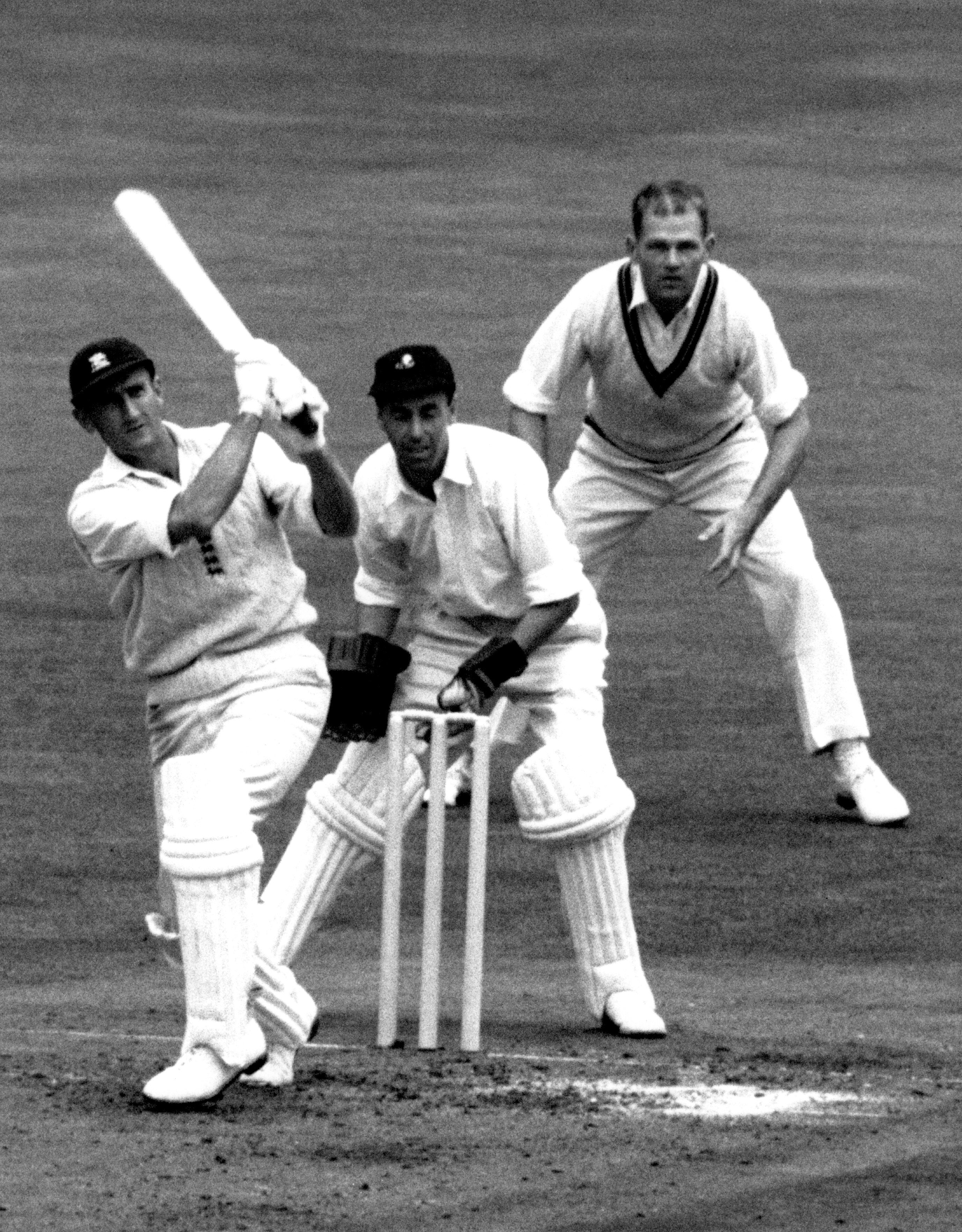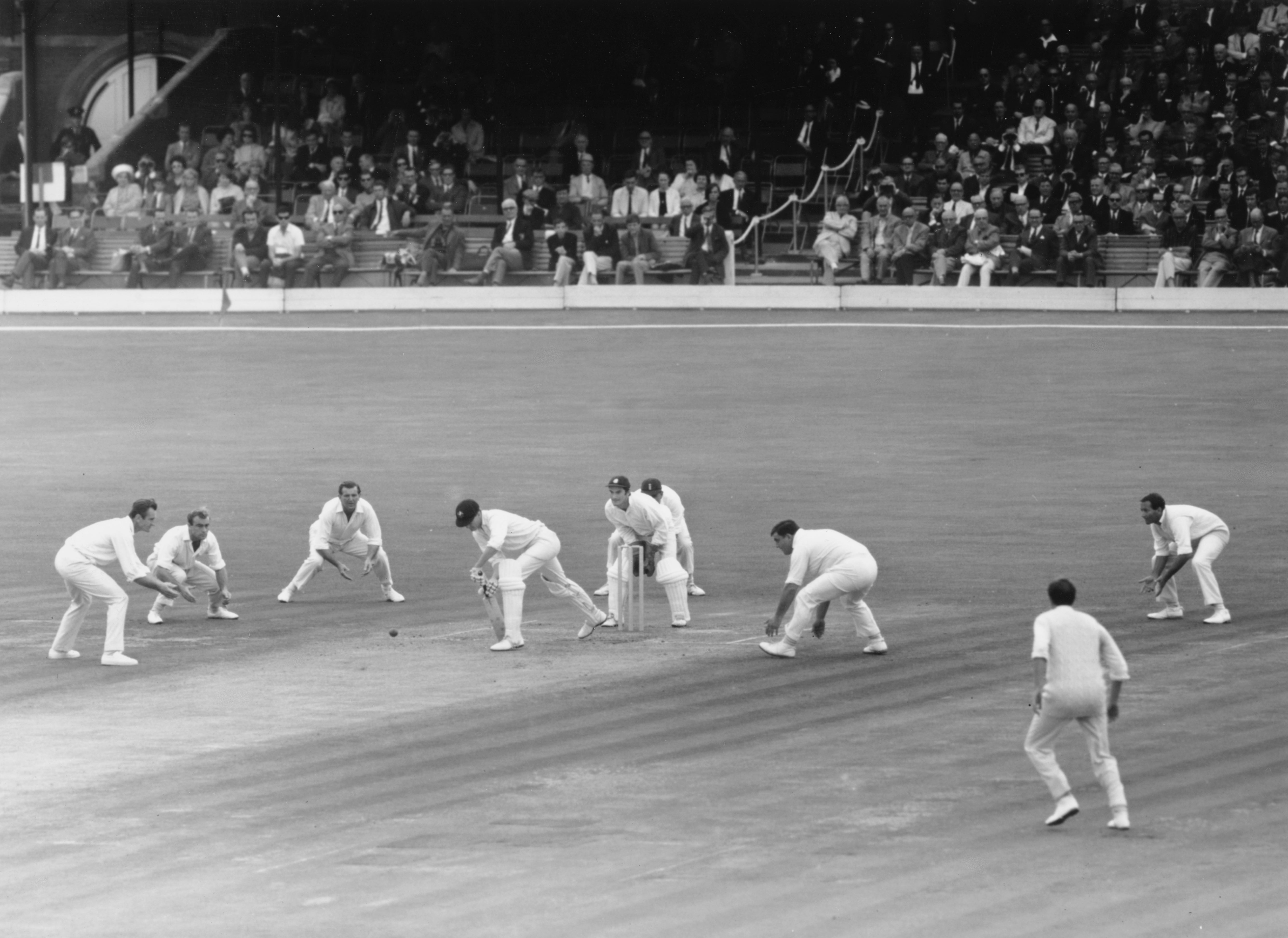Ted Dexter: Cricketer whose talent helped shape the modern game
The English Test cricket captain’s imperious flair helped rescue the sport from the doldrums and turn it into the multimillion-pound industry it is today

Your support helps us to tell the story
From reproductive rights to climate change to Big Tech, The Independent is on the ground when the story is developing. Whether it's investigating the financials of Elon Musk's pro-Trump PAC or producing our latest documentary, 'The A Word', which shines a light on the American women fighting for reproductive rights, we know how important it is to parse out the facts from the messaging.
At such a critical moment in US history, we need reporters on the ground. Your donation allows us to keep sending journalists to speak to both sides of the story.
The Independent is trusted by Americans across the entire political spectrum. And unlike many other quality news outlets, we choose not to lock Americans out of our reporting and analysis with paywalls. We believe quality journalism should be available to everyone, paid for by those who can afford it.
Your support makes all the difference.One of the game’s finest players of his generation, Ted Dexter, who has died aged 86, was a brilliant sportsman, both dashing and debonair. Initially coming to the fore as a cricketer of immense promise before enjoying conspicuous success at Test match level, his imperious flair helped rescue the sport from the doldrums and turn it into the multimillion-pound industry it is today. Retiring while still in his prime, “Lord Ted” as this TE Lawrence of the cricket field was universally known, then proceeded to pursue a range of interests that included flying, playing golf in the finest of company, writing, broadcasting, modelling and running a successful public relations company while owning both horses and a string of greyhounds. A brief foray into politics proved a rare failure.
Born in Milan the middle son of an insurance broker, Edward Ralph Dexter spent a large part of his early life in Italy. His father Ralph, a good cricketer himself, had moved from London to help revive a somewhat dormant industry. He quickly made money and married an English divorcee. During the Second World War the family returned to England. Educated at Radley College and excelling both in the classroom and on the games field, the younger Dexter proved a fine rugby fly half, reached the finals of the Public Schools Rackets Doubles and, for four years, was the star of the 1st Cricket XI. In 1952 he made his first appearance at Lord’s, representing the Public Schools against Combined Services. National Service was spent mainly in Malaya as a commissioned officer in the 11th Hussars.
Moving to Jesus College, Cambridge to read Modern Languages in 1955, Dexter initially found greater success on the golf course. Winning Blues for both golf and cricket and though making a duck on his first-class cricketing debut for Cambridge University against Surrey in April 1956, he soon emerged as pure box office. A right-handed middle-order batsman, able to drive with ferocious power off both front and back foot, when in the mood he could destroy the finest of bowling attacks. Few have hit the ball harder and his outstanding record bears testimony to both his courage and his technique. A fine fielder, amid a somewhat languid approach, he was also a rather underrated fast-medium bowler, always capable of breaking even the most stubborn partnerships.
Having hit two impressive centuries against Sussex while an undergraduate, in 1957, Dexter was then persuaded to join the county. Playing as an amateur he made the transition from university to county cricket in typically flamboyant fashion, being capped in 1959, his first full season. Twelve months later, succeeding Robin Marlar as captain, his appointment soon attracted a large following, the county undergoing a rapid revival. Always an innovative thinker, he very quickly grasped how best to play the newly arrived one-day game. He lead Sussex to victories in the first two years of the Gillette Cup Competition: they beat Worcestershire in 1963, and Warwickshire 12 months later. A dazzling century in the 1963 semifinal won him the first of two man of the match awards.

By then, having made his international debut, scoring a half century against New Zealand at Old Trafford in 1958, Dexter had graduated to the England captaincy. Leading the national side on 30 occasions, he began with a gruelling five-month tour of the Indian subcontinent in the winter of 1961-2. The cares of captaincy did little to diminish his appetite for runs. Against Pakistan in Karachi, sharing a stand of 188 with Peter Parfitt, he scored a career best 205. In the course of a few short years he captained England against Australia, India, New Zealand, Pakistan and the West Indies. Players did however occasionally find his captaincy eccentric and often inflexible. He would decide on a game plan and stick to it. As the former England opening bowler Fred Rumsey wrote in his 2019 autobiography, “when he was good he was fantastic; when he was bad he was bloody awful.”
As a Test batsman Dexter first came of age compiling two centuries and an average of 65 when in the West Indies in 1960. Outstanding among other major innings was the 180 he made at Edgbaston in 1961, and the even more remarkable 174, compiled over the course of eight hours at Old Trafford in 1964, both of which saved England against Australia. Perhaps more typical was his brilliant hitting of 76 against Australia at Old Trafford in 1961, and a quickfire 70 when facing the fearsome West Indian pace attack of Wes Hall and Charlie Griffith in the remarkable Lord’s Test in 1963. With one ball to go, four results were still possible. Twelve months earlier, against Pakistan at the Oval, he had scored 172 in a record-breaking second wicket stand of 248 with Colin Cowdrey.
Having dined at Chequers with the prime minister, Harold Macmillan, Dexter was once touted in some circles as a possible new leader of a troubled Conservative Party. At the general election held in the autumn of 1964, forsaking the opportunity to captain the England cricket team on their tour of South Africa, he was persuaded to stand as the prospective Conservative candidate in the constituency of Cardiff South East. His opponent was James Callaghan, then the shadow chancellor. While the voters found him somewhat aloof, the sitting MP increasing his majority by 6,973, he did poll a creditable 22,288 votes. While Callaghan moved on to become chancellor of the exchequer and ultimately prime minister, Dexter himself flew to South Africa to join up with the England team.

His playing career effectively came to an end in 1965, the result of a bizarre accident. Driving back home from an advertising assignment with a champagne house, his beloved Jaguar ran out of petrol. When he tried to push it off the road the car rolled back, badly crushing his leg. Although he did later return to the Sussex side and score 203, winning a further two Test caps against Australia, by then he had decided other challenges lay ahead. Particularly successful in bridging the gap at the end of the amateur-professional era, between 1956 and 1970, totalling 327 first class appearances, he scored 21,150 runs and took 419 wickets. Captaining England in 30 of his 62 Test match appearances, his total of 4,502 runs included nine centuries, while his bowling claimed 66 wickets.
With life beyond cricket proving richer than for many, Dexter became a newspaper columnist and began broadcasting for the BBC. Taught to fly by Douglas Bader, he would think nothing of hopping across the channel on a Test match rest day to take in the racing at Longchamp. When, in 1970, assigned to cover England’s cricket tour of Australia, together with his wife and young family, he flew his tiny Piper Aztec aircraft there. Getting lost over Indonesia, it took him a month. Remaining one of Britain’s finest amateur golfers, he won the Prince of Wales Open at Deal, twice claimed the prestigious Oxford and Cambridge President’s Putter and was on the shortlist for the Walker Cup. One year he failed to qualify for the Open by one shot having missed a short putt on the 18th green.
As a writer, alongside two co-written thrillers with sporting connections are volumes on both golf and cricket that are typically forthright and perceptive. A devout churchman who lived a contented domestic life, as a Lloyd’s name Dexter luckily got out just in time. His best business decision was the creation of the Deloitte Ratings, a system for allocating points for individual performance, which he later sold to the International Cricket Council. While his appointment in 1989 as the first salaried chair of the England selectors became an increasingly bruising encounter, nevertheless as his delightful 2020 autobiography, 85 Not Out, reveals, he remained a tireless enthusiast for a game that his unique talents helped to define. Here again he writes as he played, with joie de vivre.
He married the model Susan Longfield in 1959. She survives him together with a son and daughter.
Ted Dexter, cricketer, golfer and businessman, born 15 May 1935, died 25 August 2021

